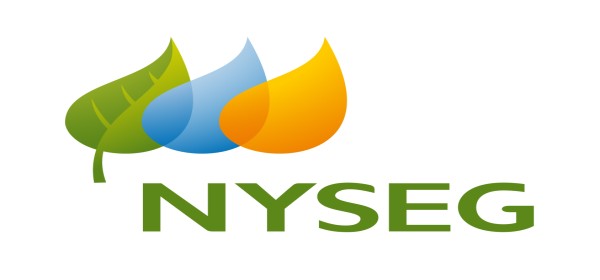NYSEG, a subsidiary of AVANGRID Inc. (NYSE: AGR), urges customers to keep themselves safe as blowing snow and frigid temperatures make for dangerous conditions. As of 5 pm, the storm had caused minor outages throughout the day, however, the deep snow in many places raises concerns to keep vents and chimneys for natural gas appliances clear of snow. Deep drifts and snow piles against a building could block vents and cause a build of potentially deadly carbon monoxide in the building.
NYSEG warns customers to keep the following important safety information in mind:
- When removing snow and ice from driveways and sidewalks, make sure you stay clear of electric and natural gas meters to avoid damaging them, inadvertently disrupting service or putting yourself in danger.
- Snow and ice can damage electric and natural gas meters, natural gas pipes and natural gas regulators, so never bury any of this equipment when shoveling, using a snow blower or plowing.
- When clearing snow, take measures to shovel snow away from the meter to keep the meter clear.
- When removing snow or ice from a roof, never let it fall on electric or natural gas meters or related equipment.
- Natural gas appliance chimneys and vents should be kept free of snow and ice to prevent the build-up of potentially-deadly carbon monoxide.
- Be prepared if you smell natural gas. If you smell that distinctive sulfur-like odor – like the smell of rotten eggs – get up, get out and call NYSEG/RG&E immediately from a neighbor’s phone.
- To report a natural gas emergency or suspected a carbon monoxide problem, call 1.800.572.1121or 911 from a neighbors phone.
Electricity Customers can get the latest outage counts; outage locations by county, municipality and streets/roads; and estimated restoration times (as they are available) on the company’s website http://www.nyseg.com/Outages/default.html.
NYSEG also encourages customers to sign up for Outage Alerts to receive updates throughout the day automatically by phone, text, or e-mail as the company updates the status of the restoration process in their area. Customers can sign up by visiting the NYSEG website at http://www.nyseg.com/YourAccount/AboutAlerts.html.
Power Restoration Priorities
In the event of widespread power outages, our first priority is responding to known incidents of downed power lines to make the situations safe. Once this vital public safety work is complete, the company will:
- Assess the damage to the electricity delivery system.
- Develop a detailed restoration plan.
- Make repairs as quickly as possible.
How We Go About Restoring Power Following Major Storms
We first repair the backbone of the electricity system – transmission lines and substations – that bring electricity to the local distribution system that serves our customers. We then make any necessary repairs to the distribution system that includes the poles and power lines along streets and roads, focusing first on those circuits where we can restore power to the largest number of customers. As part of this process, we take into account the needs of hospitals, nursing homes, fire and police stations, as well as any other critical infrastructure. This is a time-proven process that ensures we safely restore service as quickly and efficiently as possible.
Customers should remember these tips:
During a Power Interruption
- Contact neighbors to see if their power is off. A loss of power may be the result of a blown fuse or a tripped circuit breaker.
- To report a power interruption, contact NYSEG at 1.800.572.1131. Our telephone system let callers report the problem, help our crews respond quickly and efficiently, and provide customers with power interruption updates. Because many people may be trying to reach us during a power interruption, phone lines may be busy. Anyone who has access to a working computer or mobile device during a power interruption can also report the interruption online at nyseg.com.
- Listen to a battery-powered radio for weather and power restoration updates.
- Turn off major appliances (electric water heaters, refrigerators and freezers) and sensitive electronic equipment (TVs, VCRs, DVD players, computers, audio equipment) to prevent overloading and possible damage when power is restored. Turning off this equipment may mean unplugging it, turning off a circuit breaker or removing a fuse for the circuit that provides power to this equipment. Leave one light switch “on” to know when power has been restored.
- Don’t use a natural gas or propane range to heat your home.
- Never use outdoor grills or stoves inside.
- Keep refrigerators and freezers closed as much as possible. Most food will last 24 hours if you minimize the opening of refrigerator and freezer doors.
After Power Is Restored
- If a basement or home was flooded, customers should have an electrician check the home and have a plumbing and heating contractor check natural gas appliances before contacting your utility to have services turned on.
- Turn on appliances and sensitive electronic equipment one at a time to avoid overloading circuits.
- Replenish emergency supplies used during the storm.
- Additional storm safety information is available at nyseg.com (click on “Outage Central” and then on “Storm Safety”).



Be the first to comment on "NYSEG Urges Customers to Clear Vents and Chimneys for Natural Gas Appliances as Snow Piles Up"